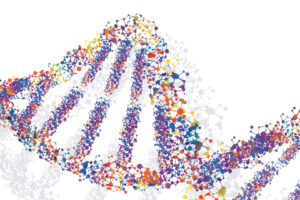Esophageal cancer is highly treatable when found at an early stage. At the Statesir Cancer Center at CentraState, patients with early-stage esophageal cancer may be eligible for a state-of-the art, non-surgical treatment that allows for a quicker return to work, family, and daily activities.
Board-certified thoracic surgeon Igor Brichkov, MD, has brought his expertise in performing minimally invasive endoscopic procedures for early-stage esophageal cancer to CentraState’s patients. This treatment – called endoscopic mucosal resection – is available at only a limited number of hospitals in New Jersey.
“When detected at an early stage, before it has spread deep into the layers of the esophagus or to nearby lymph nodes, esophageal cancer is highly treatable,” explains Dr. Brichkov. “The outcomes and survival rates from endoscopic treatment mirror those from complex traditional surgery.”
How is Endoscopic Cancer Treatment Performed?
While the patient is asleep under general anesthesia, Dr. Brichkov introduces an endoscope – a flexible tube containing a tiny camera and a light source – into the esophagus. Using small specialized instruments, he suctions the inner lining of the esophagus, caps the tumor, and removes it, similar to what happens to a polyp during a colonoscopy. No chest incisions are used.
If the tumor is a bit larger, Dr. Brichkov may use a small knife inside the endoscope to remove the tumor and surrounding tissue through the scope.
Most patients go home later that day or may stay overnight depending on the individual. They are usually able to return to work and regular activities within a week.
How Successful is the Treatment?
“Research has shown that endoscopic treatment for early-stage esophageal cancer results in a 90% five-year survival rate,” says Dr. Brichkov. “This procedure offers patients a tremendous advantage over traditional surgery, which is complex and requires a lengthy recovery. Most of my endoscopic patients experience no pain or just limited discomfort. They are up and active the next day.”
Are There Screenings for Esophageal Cancer?
There are no specific screenings for esophageal cancer, says Dr. Brichkov. Most cancers are found serendipitously when a patient undergoes a diagnostic endoscopy for another medical issue – such as heartburn or acid reflux — or if they are experiencing problems eating, drinking, or swallowing.
Am I at Risk for Esophageal Cancer?
The esophagus is a hollow, muscular tube that connects our throat to our stomach. When we swallow, food and liquids travel through the inside of the esophagus until they reach our stomach. The lower part of our esophagus contains a ring of muscle that closes to keep the stomach’s acids and digestive juices out of the esophagus.
Esophageal cancer begins in the inner layer of the esophagus wall and grows outward to other layers. Esophageal cancer makes up about 1% of all cancers in the United States, but it is much more common in people living in Iran, China, India, and southern Africa. Immigrants to the U.S. from these areas continue to be at higher risk.
In the United States, esophageal cancer affects more men than women, and most patients are over age 55. Risk factors include tobacco use, excessive alcohol use, obesity, physical inactivity, drinking very hot liquids, and some inherited disorders.
In Western cultures, risk factors also include gastroesophageal reflux disease (GERD) and a related condition called Barrett’s esophagus, caused by continued acid reflux that damages the lining of the esophagus. In Eastern cultures, a diet based heavily on processed meats and smoked fish, and infection by human papillomavirus (HPV), are added risk factors, especially among patients in Asia and southern Africa.
Patients with Barrett’s esophagus are usually monitored by their gastroenterologists with regular endoscopies, and if that condition worsens, Dr. Brichkov may perform a procedure called radiofrequency ablation to reduce a patient’s risk of developing esophageal cancer.
What Symptoms Should I Report to My Physician?
Dr. Brichkov says to schedule a visit with your physician if you experience any of these symptoms of esophageal cancer:
- Difficulty swallowing
- Pain in the throat or back, behind the breastbone, or between your shoulder blades
- Vomiting or coughing up blood
- Heartburn
- Hoarseness or chronic cough
- Unintentional weight loss
Your physician may recommend that you undergo an endoscopy or other test to assist in diagnosing the problem.
STATESIR CANCER CENTER AT CENTRASTATE
Learn more about the Statesir Cancer Center at CentraState.





